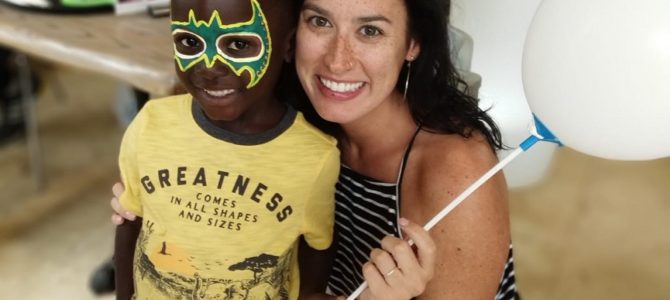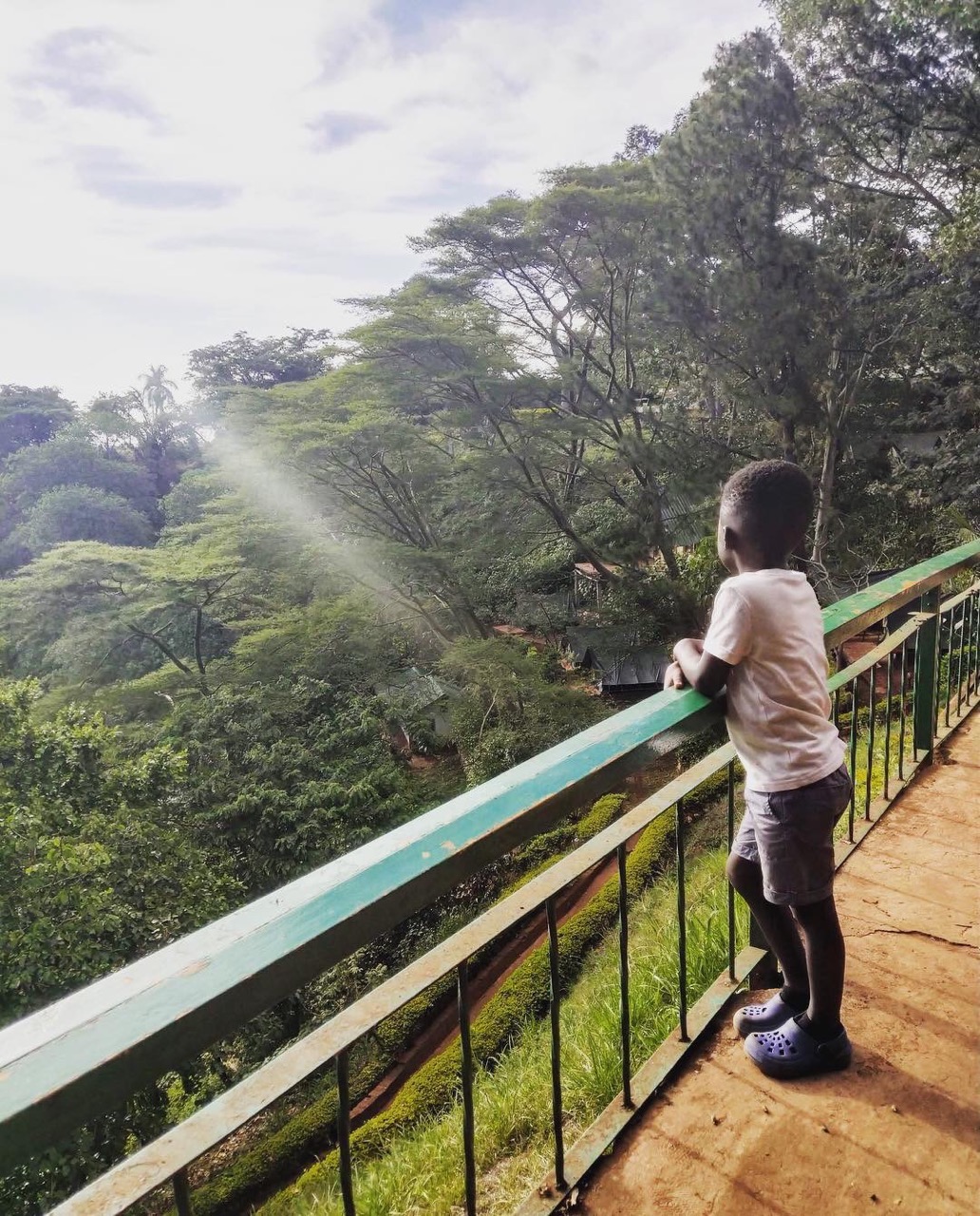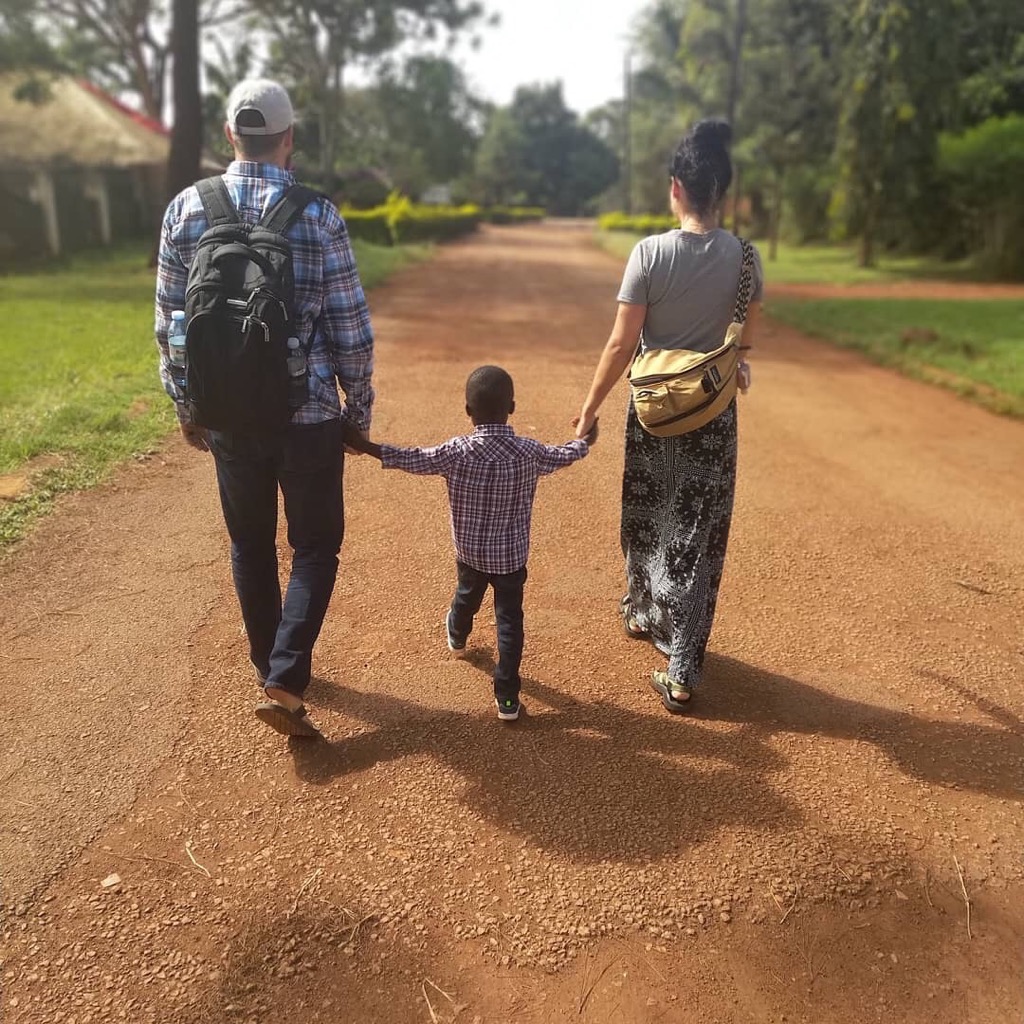
As the COVID-19 pandemic began engulfing the globe last month, the U.S. State Department issued a Level 4 travel advisory for Americans — its strongest warning. Besides advising U.S. citizens “to avoid all international travel,” the State Department said, “U.S. citizens who live abroad should arrange for immediate return to the United States.”
That’s exactly what Lyndsey Voss is trying to do. The 30-year-old Florence, Alabama native has been living in Uganda for nearly two years, pursuing the adoption of a young boy we’ll call “Alex.” As many other Americans have evacuated and Uganda has closed its borders, it’s been the U.S. State Department keeping Lyndsey and her 7-year-old son from going home.

Barred from the Embassy
Lyndsey moved to Uganda in the fall of 2018 with the help of her husband, Jacob. They were familiar with the country already, having taken humanitarian trips to a Ugandan orphanage for years. While there, they had fallen in love with a boy who lived at the orphanage.
“Unlike many of the other kids, he didn’t have extended family to go home to on holidays,” Jacob remembers. The couple took custody of Alex, then 5 years old, in October 2018. Lyndsey committed to stay with their son in Uganda until the adoption could be finalized, while Jacob continued living and working in the United States.
The Ugandan government finalized the adoption in October 2019. Since then, the family has been waiting for the U.S. government to complete its immigration investigation and issue a visa so Alex can come home.
The Vosses were prepared for a wait. In countries like Uganda, which haven’t ratified the Hague Adoption Convention, the U.S. government typically conducts an investigation to verify adoptions are legitimate and ethical. When U.S. Citizenship and Immigration Services received the Vosses’ paperwork Nov. 12, 2019, it estimated their processing time at 10-18 weeks.
Had the government met this estimated deadline, Alex should have received his visa by the time the State Department issued its Level 4 advisory March 19. As of this writing, however, the U.S. Embassy in Kampala is still processing Alex’s case. It has given the Vosses no word on how long they can expect to wait, and Jacob’s pleas to expedite the case — along with the intervention of numerous senators and representatives — have fallen on deaf ears. “We can’t even get a status,” Jacob says.
On March 21, with the situation in Uganda rapidly deteriorating, Jacob booked a flight to Singapore for his wife and son. It was the last commercial flight leaving the country. “I thought then they’d at least be in a country with better health infrastructure and access to food,” Jacob told me. “The U.S. Embassy in Singapore could keep tabs on them there — maybe keep processing the case from there. The important thing is that they’d be safe.”
But the next day, when Lyndsey accompanied two other adoptive families to the U.S. Embassy in Kampala, embassy staff were anything but helpful. “They gave the other two families their visas,” Jacob says, “but they told Lyndsey they were ‘nowhere near ready’ to issue our son’s visa — even though she’s been in the country longer than the other families. They told her that under no circumstances was she allowed to take our son out of Uganda. They wouldn’t even let her inside the embassy. She had to sit outside the gate.” He pauses at the memory. “That was an emotional day.”

Now, with the other American families gone, Lyndsey and Alex are alone in Uganda. The country is in total lockdown, having sealed its borders and forbidden all car travel. Violence and unrest are bubbling to the surface. When Lyndsey walks to town for supplies, she’s met with growing hostility from Ugandans, who see coronavirus as an illness brought to their country by foreigners. What’s more, her Ugandan visa will expire April 6, and with no way to renew it, she will be in an even more precarious position.
As worried as Jacob is about his wife, they both agree that leaving their son alone in Uganda during a pandemic is out of the question. “She would die for our son,” Jacob told me. “We’ll never abandon him. We’ll never take him back to an orphanage after he’s been with us so long. He’s our only child. He wasn’t our Plan B; he was our Plan A.”
Fearing for Safety
Jacob and Lyndsey aren’t the only adoptive parents in this predicament. The National Council For Adoption estimates dozens of families are stuck overseas in various stages of the adoption process — families with minor children who, in many cases, are already legally adopted. In addition to the Voss family, I’ve spoken with three other families facing the prospect of riding out the pandemic overseas, as they await U.S. visas for their children.
David and Michaela, who prefer not to publish their surname, are in Cameroon waiting for the U.S. Embassy to process visas for their 2-year-old twin daughters. The couple had moved to Chad as missionaries in 2018. Last October, they adopted the twins, whose biological mother had died from childbirth complications. Because the U.S. Embassy in Chad is too small to handle adoption cases, the family was sent to Cameroon for the American side of the adoption process.
David and Michaela are now being asked to update their home study, but it is impossible to acquire proper Cameroonian documents during the crisis. The couple’s Cameroonian visas have now expired, but because of travel restrictions, they cannot return to Chad, leaving them in legal limbo.
Anti-foreigner sentiment is increasing due to the virus. If apprehended on the streets, they could face arrest or deportation. “We fear for our safety and the safety of our twin daughters and six-month-old son,” David wrote in an email, begging the embassy to expedite their case.
“I completely understand the difficulty embassy staff are facing. I completely understand the need to make sure everything is proper with the adoption,” Michaela’s mother told me. “But I can’t imagine how leaving them stuck there, with no way of getting food or supplies, is in the best interests of those children.”
Ufuoma Sada is in Nigeria with her eight-month-old daughter, Zoe — “the most amazing little girl anyone has ever met” — who has been legally adopted since December. Ufuoma and her husband Ebenezer are dual citizens of Nigeria and the United States, and Ebenezer is back home in Ohio, working to keep the family financially afloat.
Although they anticipated inefficiencies on the Nigerian side of the adoption, they’ve been surprised to find that all the difficulty and delay has occurred on the U.S. side. Upon contacting the U.S. Consulate in Lagos to request an initial appointment last December, Ufuoma says it took three weeks merely to receive a reply saying, “Come in any time.”
Communication with the consulate has continued in that vein: no status updates and no estimates on when Zoe’s visa might be ready. “They just don’t respond.” Now, with COVID-19 bearing down on Nigeria, Ufuoma’s frustration has given way to fear. “Nigeria has a lot of cases of the virus; they just haven’t tested. The health care here isn’t good. We have no electricity. Zoe’s been ill now for a while.”
She begins to fight back tears. “How can you leave me outside the country as an American citizen? How can you ask me to leave a less than 1-year-old child here?”
Bambo Alli and Robin Gallite have also run into roadblocks at the U.S. Consulate in Lagos. The couple has been living in Nigeria for eight months with 16-month-old Nike, whose adoption has been finalized since October. Nonetheless, the consulate has given them no information on the status of Nike’s visa, even as the U.S. Embassy in Abuja keeps urging them to go home. With the final remaining evacuation flight scheduled this week, time is running out.
“We’ve written to Lagos maybe three times in the last 10 days, essentially begging them to finish processing our case. We have not heard back,” Robin says. While she and Alli are thankful to be together and staying with Alli’s extended family in Nigeria, they are both concerned about their elderly parents in the states. “We know we can go home,” Robin told me. “But it’s out of the question — we won’t get on that plane without our daughter.”
A Need for Urgent Action
On March 27, the National Council For Adoption (NCFA) issued a press release, asking the State Department to “recommend and coordinate the urgent processing of humanitarian parole to the children of adoptive families who are unable to receive an adoption visa in a timely manner.”
“Each of these cases need urgent action,” said NCFA’s Ryan Hanlon. “U.S. citizens who have adopted children internationally cannot be asked to abandon their children while waiting for a visa.” NCFA notes that the State Department’s own Foreign Services Manual instructs consular officers to prioritize adoption cases, and that these emergency circumstances warrant urgent measures to keep American families safe.
Responding to a request for comment, a State Department official told me, in part: “We understand that this is an extremely challenging time for prospective adoptive families who are overseas waiting to complete their child’s immigrant visa application.” Inter-country adoption cases, he said, “remain a high priority for the Department of State.” Noting that “U.S. Citizenship and Immigration Services is responsible for determining cases of humanitarian parole,” the statement stops short of promising to urgently intervene, which is what these families need.
Jacob Voss, who is trying to get seats for his wife and son on the last flight for Americans leaving Uganda this Friday, told me lawyers and officials on the ground have assured him U.S. Citizenship and Immigration Services is unable to move quickly enough to help his family. Only the U.S. Embassy, he’s told, can act in time.

Indeed, an emergency intervention would go a long way toward assuring adoptive families that despite recent differences about how strictly to regulate international adoption, the U.S. State Department is still a good-faith actor. All the families with whom I spoke expressed wholehearted agreement with the goal of ensuring careful, ethical international adoption. None of them want shortcuts. They simply want efficiency and consideration of these extraordinary circumstances.
“We’re not going to go dark,” Jacob told me. “The U.S. government knows where I live. We’ll go back to Uganda as soon as this is over if they want us to. I just want my family out of harm’s way.”









